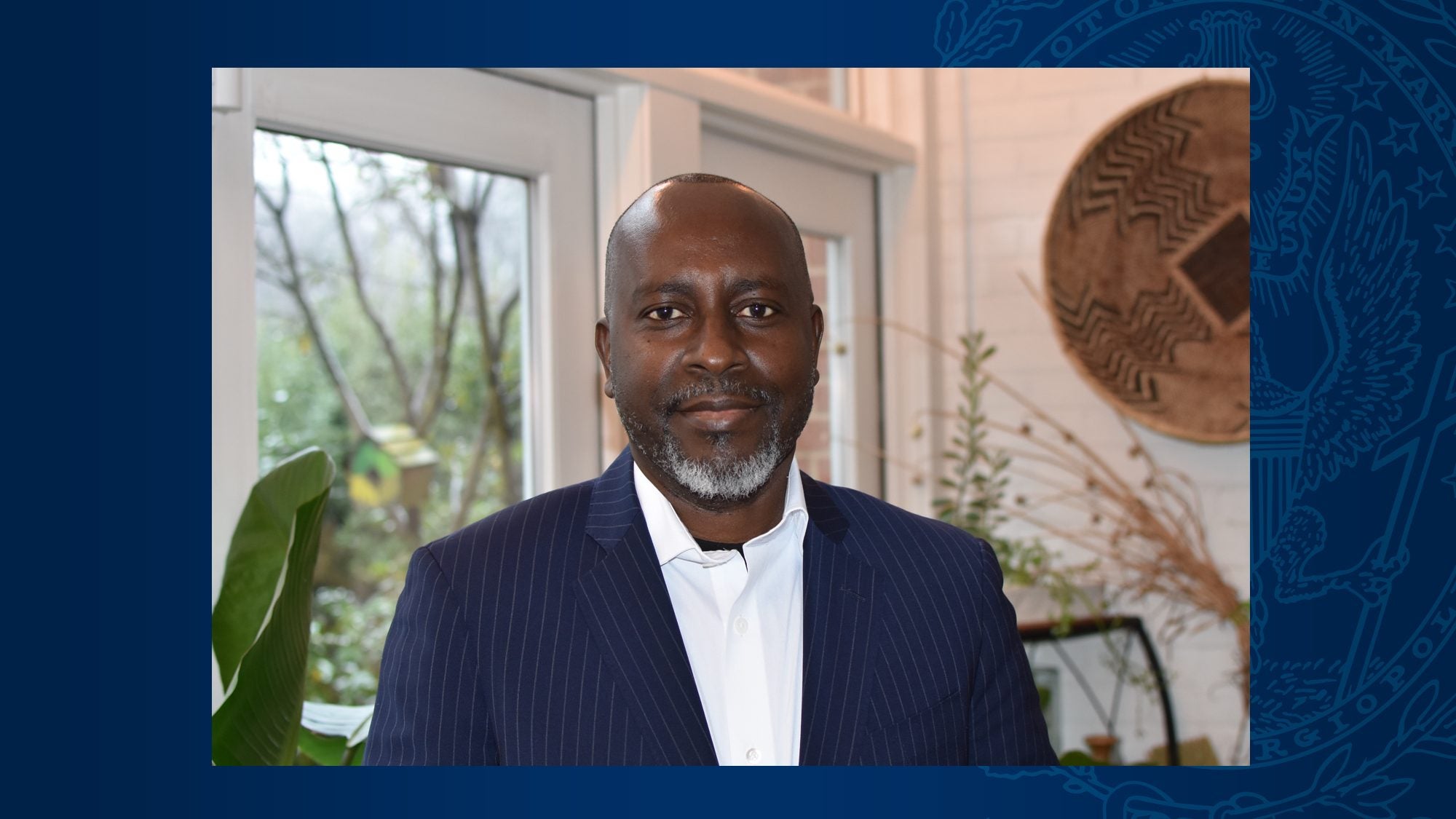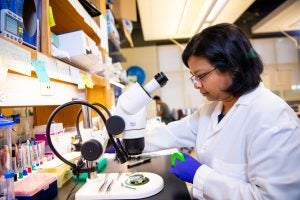In his new role, Bazira will harness and amplify Georgetown’s strengths in global health developed over the last two decades by convening and mobilizing researchers and students for broader impact.
Bazira, an associate professor of medicine in the School of Medicine, is a renowned scholar in strengthening health systems and a public health practitioner with decades of in-depth, field-level practical experience working and building partnerships in emerging economies. He also serves as founding director of Georgetown’s Center for Global Health Practice and Impact (CGHPI), which he will continue to lead.
“We are grateful to have the leadership, expertise, and experience of one of our world’s leading global health scholars,” said Georgetown President John J. DeGioia. “Dr. Bazira joined our community in 2019 and in the years since, has demonstrated a deep commitment to collaboration, an ambitious vision for how Georgetown can contribute to global health, and a deep understanding of the values that guide our mission.”
Bazira has deep experience in the communities that his work focuses on. Born in Uganda, he grew up at the height of the HIV/AIDS epidemic in an environment where access to health care was a privilege – an experience, he says, that shaped his ultimate goal: strengthening the resiliency of health systems that are self-sustaining and ensuring equitable access for all to optimize individual and population health outcomes. His professional journey led him from Uganda to South Africa and then to Maryland before he settled in Washington, DC.
“Building and strengthening the global health community at Georgetown, and creating a platform that allows us to collaborate as an institution, will help elevate and amplify our work,” Bazira says. “We will also be better positioned to undertake interdisciplinary work, to take advantage of opportunities that a faculty member, center, department or even a school wouldn’t be able to do on its own.”
Moving the Needle on Global Health
The Global Health Institute (GHI) builds on the foundation of Georgetown’s university-wide Global Health Initiative, which, for the past five years, modeled how a collective approach to global health at Georgetown could work. The Global Health Initiative was launched in 2017 as an interdisciplinary platform for supporting research, teaching, scholarship and service in global health.
GHI provides an elevated focus and structure to connect global health-related initiatives across Georgetown’s schools and campuses. Its work will be informed and overseen by the executive vice presidents of main campus, the Medical Center and Georgetown Law, reflecting the university’s broad-scale commitment to global health.
“This institute aims to be the platform that brings together the entire Georgetown global health ecosystem under one umbrella so we can have a full appreciation for what Georgetown faculty, researchers, students and staff are doing in global health,” Bazira says. “It will help us explore areas of collaboration between the different schools, departments, centers, institutes, labs, faculty and students interested in global health work. It will enable us to more effectively work in the areas of research, education and service.”
Bazira noted that a faculty advisory committee and external advisory council will be formed in the next 12 months to bring diverse perspectives to the GHI, including from the private sector, government and the nonprofit space. He will oversee a small core administrative team based at the institute and will work collaboratively with schools and centers to support communications, grant development and implementation, and data management infrastructure.
Learn more about Bazira’s vision for the GHI, and how it will build bridges across the university’s many strengths in global health. This interview has been edited for length and readability.




